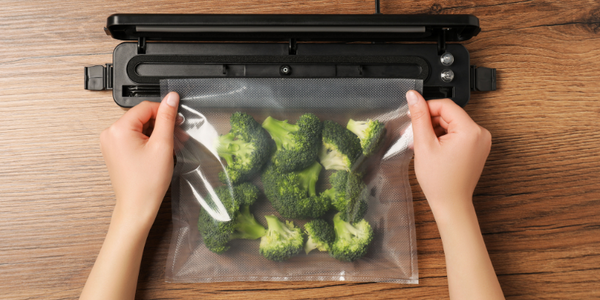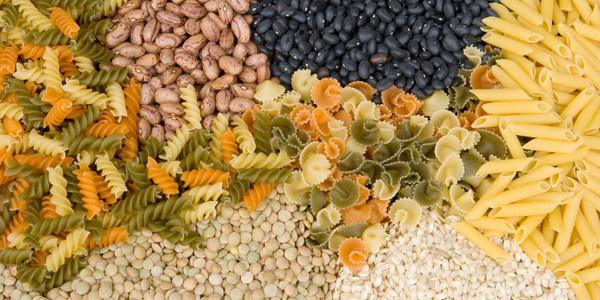Posted on July 25 2023

It's no secret that the cost of just about everything is steadily on the rise. Even the most oblivious among us can't help but notice. Collectively, we feel uneasy about what the future might bring, and wonder how we're going to pay for the things we need.
At the end of the day, the reality is that the extra money for our increasing expenses must come from decreases elsewhere in the budget. Even if you're mostly still doing OK and only your regular deposits to savings are slowing down, a few cutbacks here and there could go a long way towards future-proof your financial plans.
If you're not so fortunate as to have wiggle room in your budget, then chances are that the rising cost of living is not only cutting into your meager savings but also into the buying power of the money you have available. You know you must find a way to do more with less.
These 13 suggestions will help you to do just that.
This is number one because it's by far the most important thing you can do.
If you can't cook, it's essential that you learn how. If you can cook, learn to cook better. Watch cooking videos, visit cooking websites, and read cookbooks. Make it one of your hobbies. This step alone can save you a ton of money spent on unhealthy and unaffordable take-out meals that aren't nearly as good as those you can produce in your own kitchen, for a lot less cost.
As an added benefit, many people feel that cooking inspires creativity, excites the senses, provides a way to nurture others, and is immediately gratifying. In fact, it's even suggested that the act of cooking can help relieve depression by encouraging constructive activity and the positive development of goal setting.
Going outside costs nothing but, if done correctly, can result in a whole lot of fun entertainment. There's something for everyone no matter what the season.
The long, lazy days of summer are prime time for outdoor living. Make sure you take the time to enjoy it.
Fall is when the harvest comes in. Apple-picking, corn mazes, a visit to a pumpkin patch, and the excitement of the fall fairs (where you can exercise your newly acquired cooking skills in competition) are just a few of the activities cheaply available.
In the winter there's skating, snowshoeing, sledding, snow fort building, and friendly snowball fights with friends and family. Plus, a brilliant winter day outside is never complete without a thermos of hot chocolate (don't forget the cups and marshmallows) and some hot dogs to roast on sticks over a bonfire.
Spring is a joyful season that indulges any excuse to get outside into the beautiful weather. Hiking, kite-flying, and bike-riding are the order of the day. Spring is also the time to get your garden out of winter hibernation and do a general clean-up.
Recognize bargain hunting as the legitimate sport that it is.
Things like sports equipment (snowshoes and cross-country skis, for example) and cooking gadgets of all sorts (for your new cooking hobby) simply beg to be bought secondhand. The savings are just too good to pass up.
Besides the usual online sources, there are also flea markets, thrift shops, and garage sales. Whatever you're looking for, it's likely out there just waiting to be discovered.
You can also try your hand at modernizing old, high-quality furniture for your home, or for resale as a side hustle to make extra money.
This should be a no-brainer. There are lots of online resources to sell your unwanted stuff and they're very easy to use. Upload a few great photos and you're mostly done.
This is to keep you out of mega-expensive coffee shops in the morning.
.
Public Libraries are simply awesome.
All libraries have large collections of traditional paper books (including a dedicated children's section), e-books (including cookbooks on preparing healthy meals and lunches), audiobooks, movies, and music that they add to on a regular basis. Once you sign up for your membership card, you can borrow any of it for free.
Of course, the larger your city, the more funding the library has, but many offer magazine and newspaper subscriptions (both online and physical copies), access to online research materials like Consumer Reports or Ancestry, and educational sites like Linked-In Learning.
Your local library will offer free high-speed internet and desk-top computers with printers available to use on-site. They may also have such things as 3D printers, all manner of camera equipment, green screens, specialty software, recording equipment, and possibly even a music room.
Take advantage of your public library membership with an e-reader that's compatible with the public library software. Go to your library website for further information on their requirements.
Creating a simple budget is much easier than you think.
Write down a list of all your expenses. Dig deep and make sure you find it all. This is the time to look things over closely, making cuts wherever you can. Pluck that low-hanging fruit first.
Are you still paying for cable TV? Do you have forgotten monthly subscriptions that you no longer use? What about bank and interest charges? Do you habitually carry a balance owing on expensive credit card debt? Are there small amounts spent here and there that add up to large amounts when looked at monthly?
To make the process easier, download a budgeting app to help you. You can decide how detailed you need your budget to be. It may be that all you really need is to break your disposable income down into a few manageable chunks, distribute the chunks to the different categories, and leave it at that. Or you may find you want to do a deep dive into your financial well-being and get detailed to the max. The choice is yours.
Everything about your life gets easier when you have organizational skills, and your finances are no exception.
Make a shopping list and stick to it. Not only are you guaranteed to come home with everything you need to make the great meals you've planned, but you save money not duplicating things you already have on hand.
You might even lose a pound or two by keeping the expensive junk food off the list. For instance, pop your own plain popcorn in a silicone microwave corn popper rather than buy the pricey, salt, fat, and chemical-laden microwave bags.
Put your new cooking skills to work instead of eating out with friends. Dinner parties, snacks for games night, picnics in the park, and potlucks all make your entertainment dollars go so much further.
Stop buying junk food and make sure your definition of junk food is correct. Your body will thank you for it.
If you think of a ham sandwich on white with fruit juice and potato chips on the side as a healthy meal, you will want to further investigate the art of feeding yourself for glowing good health. You can borrow an e-book on the subject at your local library for free.
One of the most expensive items on a grocery list tends to be meat. Simply cutting down your portion size is a good place to start. Soups and stews work well for cheaper cuts of meat, and stir-fries extend a more expensive cut with lots of fresh or frozen veggies (depending on the season).
Eggs and dried beans are a wonderful bargain. Omelets are quick to make with odds and ends from the fridge and a bit of cheese. The possibilities really are endless.
Apply this rule liberally to such things as clothing, furniture, appliances, and groceries, just to name a few.
As an example, are you a person who buys a ton of cheap plastic decorations before every holiday and then throws them out the day after the big event? Not only is this bad for the earth we live on, but it's also bad for your financial situation. You might just as well throw that money directly into the garbage and save yourself some time.
If you're a person who genuinely loves to decorate for the holidays, make original decorations. There's no end to online tutorials to make amazing stuff from found objects that cost practically nothing. You can also find e-books full of project ideas and patterns at your public library.
Vacuum sealing helps preserve food much longer than traditional storage methods, keeping it fresh and preventing spoilage. By extending the shelf life of perishable items like fruits, vegetables, and meats, you can buy in bulk or take advantage of deals and discounts without worrying about food going bad before you have a chance to consume it. This can lead to substantial savings on grocery bills and positively impact your budget. Additionally, reducing food waste is also environmentally friendly, contributing to a more sustainable lifestyle.
Getting a handle on your spending is one of the best things you can do for your family's well-being, and using these 13 tips can get you anywhere you want to go. Once you have your money habits under control, everything else will fall into place quite nicely, and you will always have a few bucks reserved to take advantage of amazing opportunities, save for that vacation you've always wanted, buy that property, or retire (much) earlier than expected. The choice is yours.





0 comments